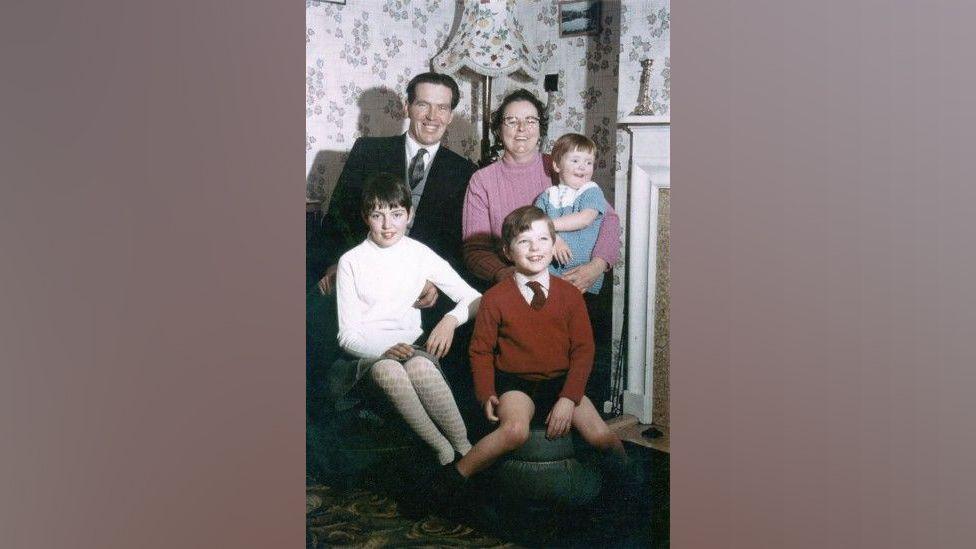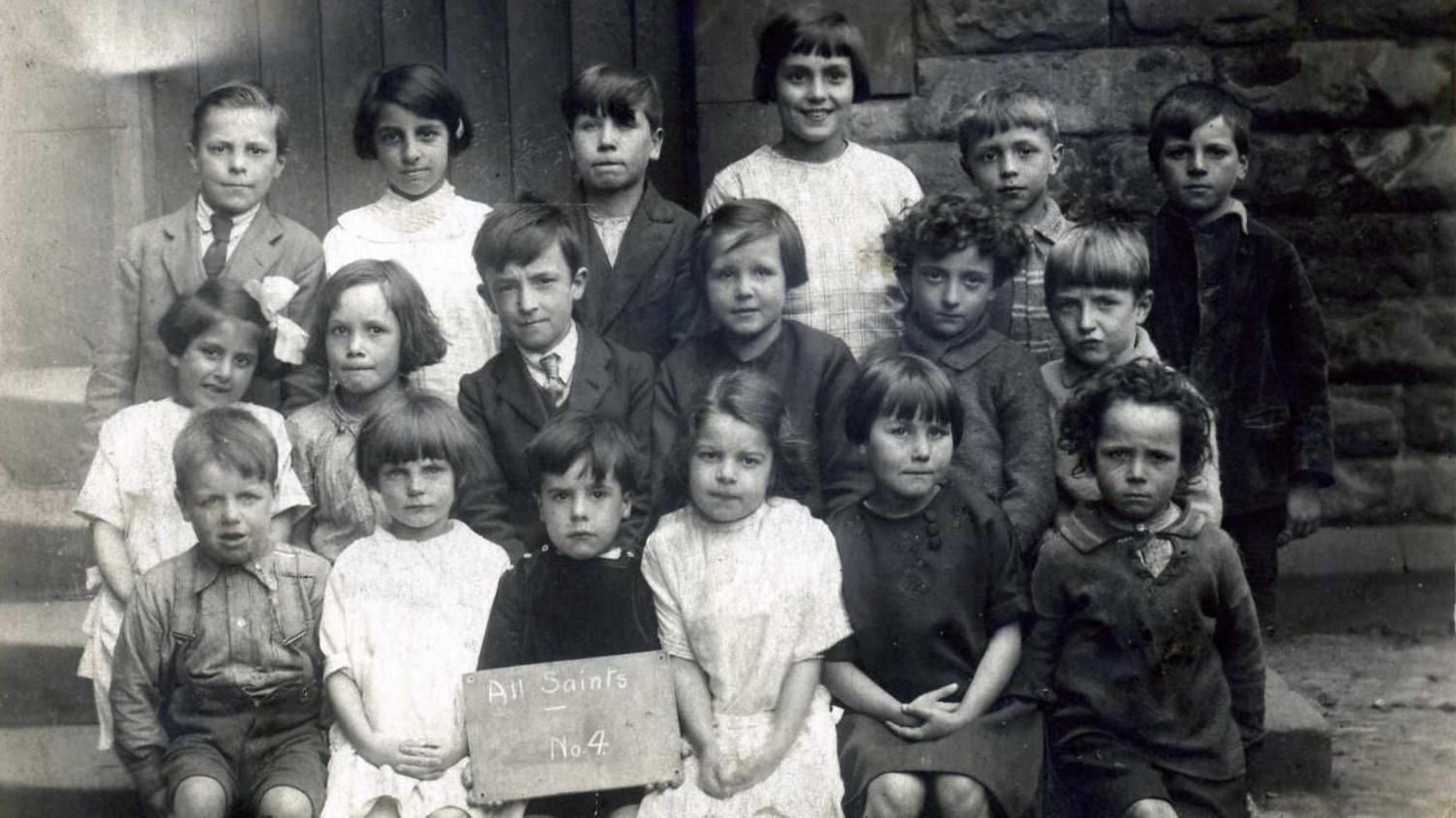Town's role 'offering shelter' highlighted by exhibition

Karlis Zirins and his family, pictured here in the 1960s, made Cockermouth their home
- Published
The story of a teenager unable to return home after being forced to fight for the German army in World War Two is to be told as part of an exhibition exploring 300 years of a west Cumbrian town's history.
Aged about 17, Karlis Zirins was enlisted by the Nazis when German troops invaded Latvia and he fought against Russian forces until surrendering to the Allies near Berlin.
Facing death if he returned home after the war as his country was under Soviet control, Mr Zirins, known as Charlie, stayed at a Cumbrian camp accommodating displaced people from across Europe before settling in nearby Cockermouth where he married and had children.
His experiences will form part of the Offcomers exhibition being held at Cockermouth's Kirkgate Centre from 16 August.
The story of Isaac Jarra, who came to England from India's West Bengal at the beginning of the 20th Century, will also be told.
He worked as a cook and butler for several Cockermouth families and, having married, had children who were pupils at All Saints School in the building which is now the Kirkgate Centre.

An All Saints School photo from 1929 shows Isaac Jarra's daughters Miriam, on the back row second from the left, and Alicia, in the middle row first from the left
Helen Johnston, Kirkgate's community projects officer, said the exhibition showed Cockermouth's role in offering refuge to people in need of shelter.
She said: "For some, their stay in the area was for a short period of their life, whilst others made the town their long-term home and raised their families here.
"We have selected a few of their stories to give a sample of people's different experiences. These stories are now part of our wider community's stories, ingrained in our cultural consciousness."
The event will run until 1 September.
Follow BBC Cumbria on X (formerly Twitter), external, Facebook, external and Instagram, external. Send your story ideas to northeastandcumbria@bbc.co.uk.